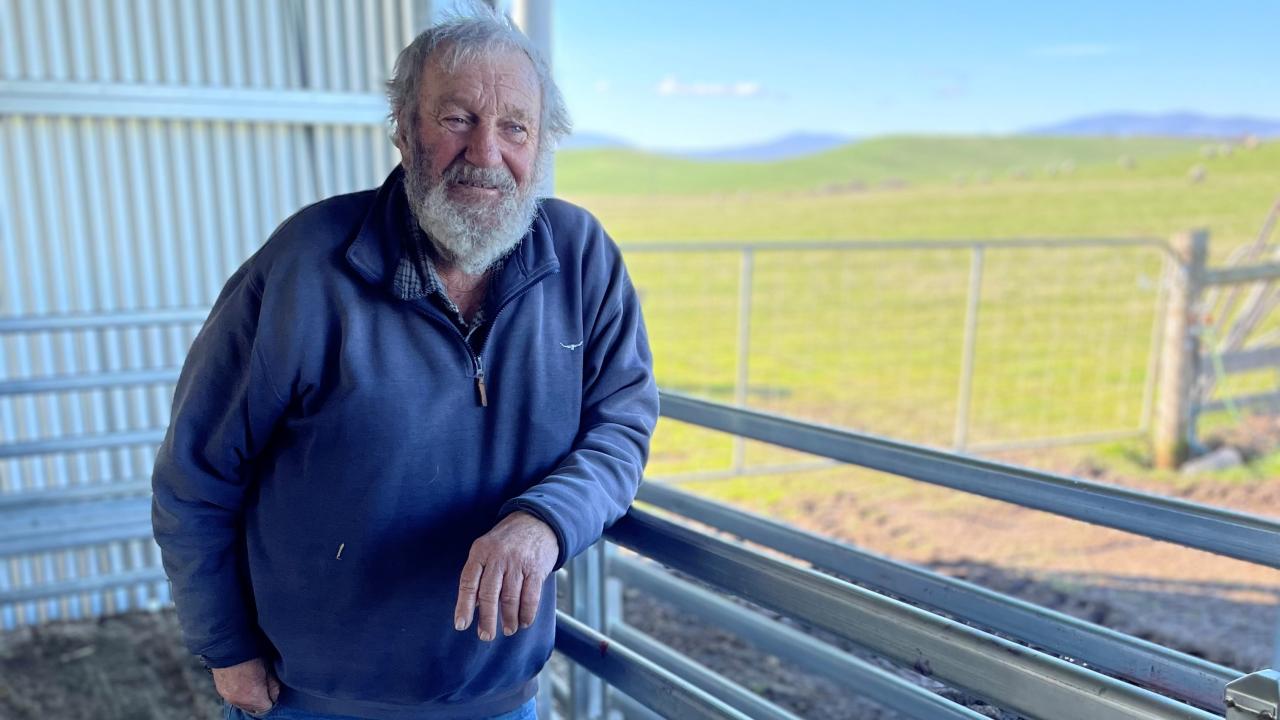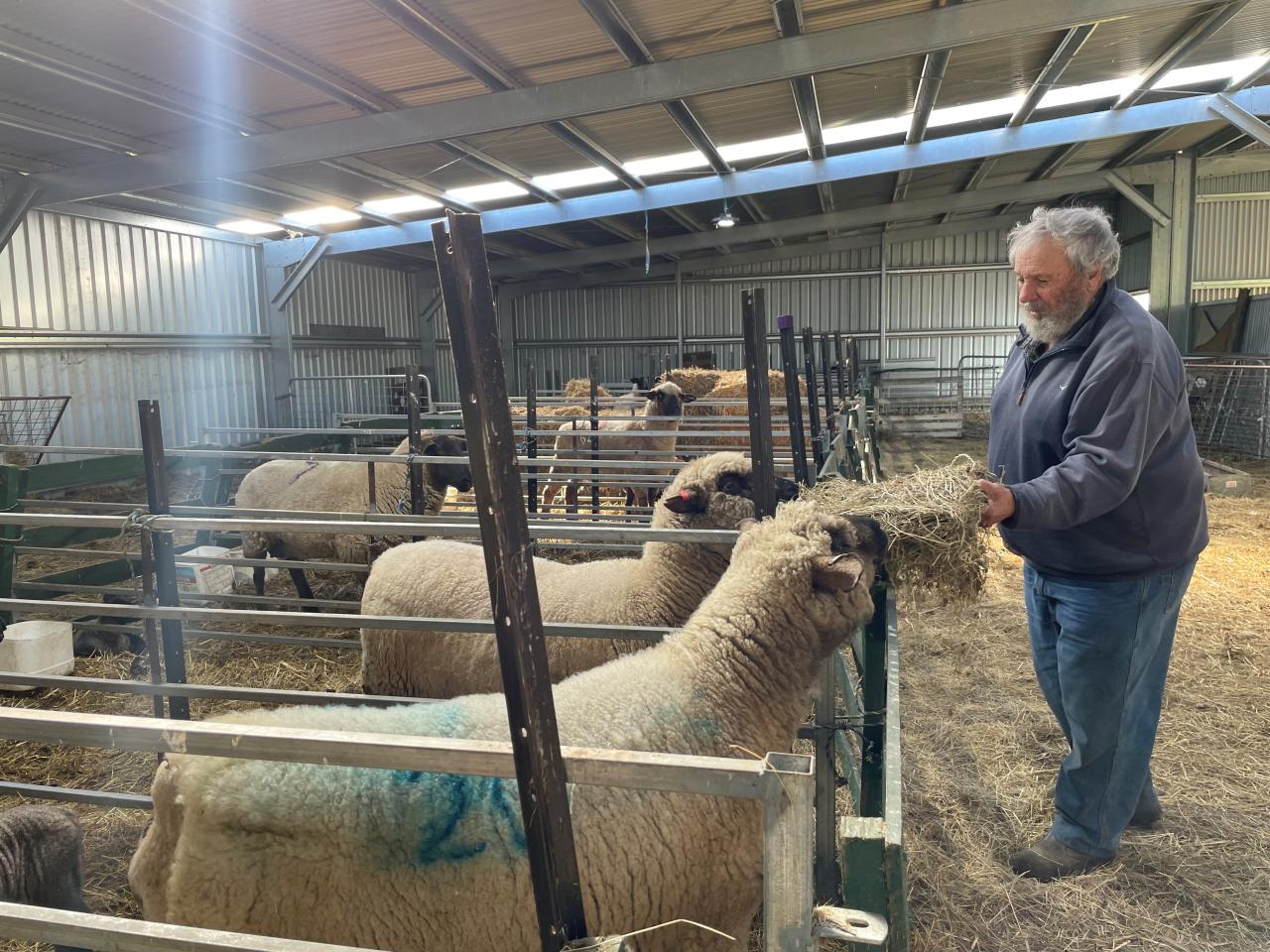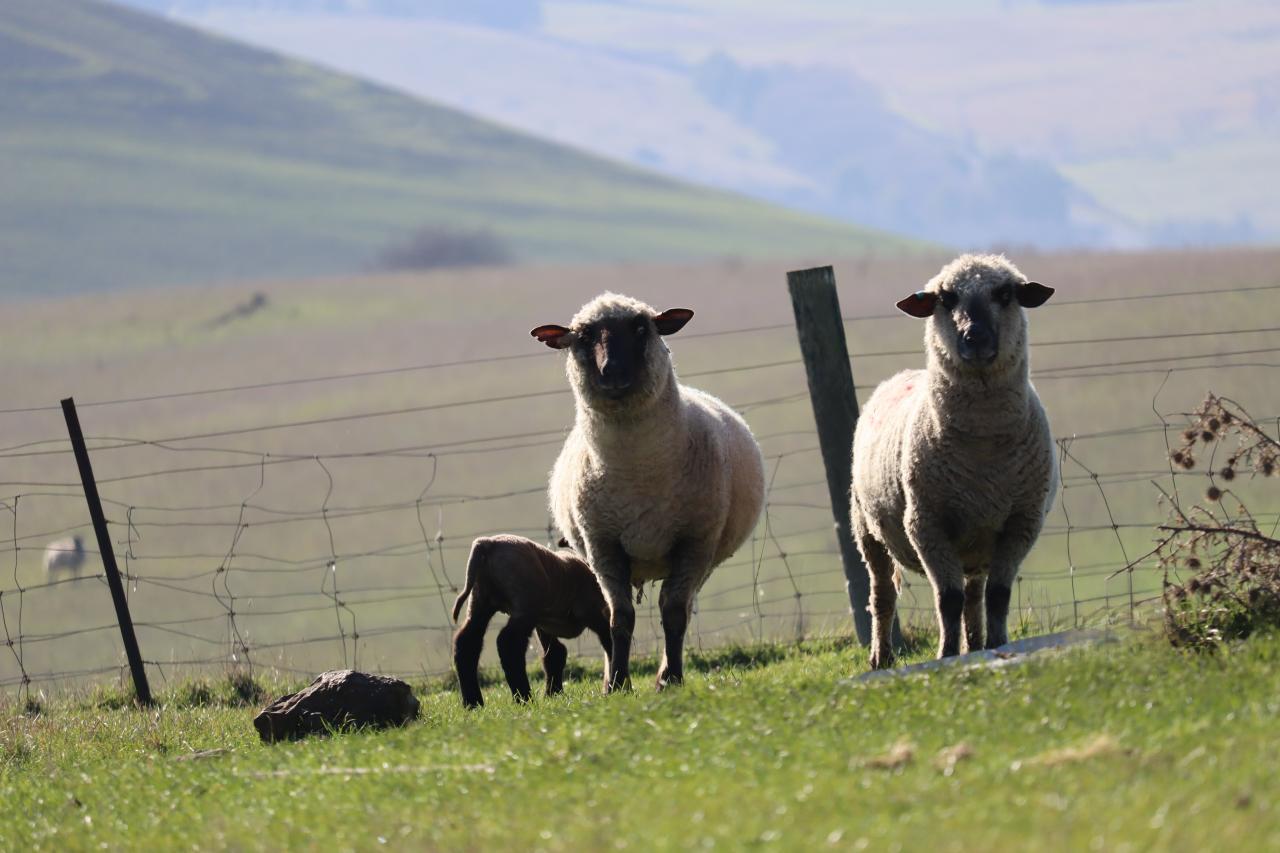Jockey, farmer and champion: Life's good for Rod

Rod Summers took a ute-load of Hampshire Down ewes to Powranna saleyards last week and the tops fetched a new Tasmanian price record of $272.
The black-faced breed is not usually the most popular sheep meat breed at the market, but like Rod said “a bit of black wool makes no difference to a chef”.
One fellow livestock breeder, who noted their bulky figures, jokingly pointed him to the cattle yards and suggested he take them down there.
Bred at his Evandale farm, Marananga, which is set between the rolling hills on the southern end of Launceston Airport, achieving a top price was some good news in a year that has thrown a fair bit at the 78-year-old stalwart of the state’s livestock industry.
Earlier in the year a storm that he described as “sweeping across the paddocks like a typhoon” destroyed his $300,000 lambing sheds and workshop and carried away his precious boat that was parked nearby.
A new replacement shed was set up just in time for this lambing season, a veritable Taj Mahal compared to the old one, and about 60 of his best Suffolk and Hampshire Down ewes are being spoiled inside while the rest of the flock of 130 gives birth in more natural surrounds, often tucked in under the giant pines on top of a hill.
“Some of the older, quieter ewes will come to the shed to lamb and walk up the aisle and pick their pen!” Rod said.
“It’s nice to have it set up so it’s easy to move the stock around, feed any lambs that are struggling and keep the sheep clean if they’re being prepared for a show.”

Both Rod and his partner Lou spend a lot of time in the shed, mixing up feed and keeping an eye on the lambing.
One particular Hampshire Down ewe, Bam Bam and her lamb Pebbles, are earmarked for the show scene and are being fussed over just that little bit more.
Rod has been showing the British breeds since 1964 and he’s also judged all over the world – a scrapbook filled with newspaper clippings with him and ribbon-draped ovines are testament to that.
As he leant over a pen to feed a handful of hay to a new mum of twins, he reflected on a lifetime of building up lineage that could hold its own anywhere on the planet.
Bought in 1973, the 64ha property boasted nothing more than a small tin shed and some old convict-built stone and mud ruins from the early 1800s.
Rod named it Marananga (Aboriginal for ‘with my hands’), maintaining the stud name he had built up on his grandmother’s property at St Leonards.
While the original stud only consisted of a couple of acres, Rod had done deals with many people around St Leonards to keep a few sheep in their back yard, the only real problem arising at breeding time when he’d have to gather them all up and take them to the St Leonards footy ground for the ram to cover – carefully timed between football and cricket season of course.
Marananga was purchased from Tom Davey, whose name is immortalised on the long access laneway off Evandale Road.
Tom had originally promised the land to Mac McKibben, who wanted it for his two boys, however, they decided they weren’t interested in farming but Mac knew Rod was after some land for his stud and put his name forward.
Tom agreed and named his price, on the condition that the deal would need to be done before he went to town on Friday, five days later, when he would put it on the open market.
Rod had not long started working for Roberts full time but had been saving money since his early years as a paper boy and helping move stock and write up reports at Killafaddy abattoir on a weekend, but the 18,000 Pounds in the bank was well short.
Robbie Archer from Landfall, one of Rod’s clients, generously offered to put up the balance.
“That was one of my three goals in life achieved – I wanted to be a jockey, I wanted to be a farmer and I wanted to have the champion ram at the Royal Melbourne Show,” Rod said.
Rod had already achieved jockey status, transitioning from hunt riding with the Northern Hunt Club to track riding as an amateur.
He won his first ever race on the flat at Longford and followed it up with two more wins including one in the feature hurdle race at Mowbray on ex-Grand National winner Young Gallant.
“That third race was at Mowbray, and it was meant for professional jockeys, but I wangled the ride only to come up short on weight,” Rod recalled.
“A quick-thinking jockey, Gary King, ran down to the bar and came back with a heap of coins and added them to my leg bag before giving me some advice about how to ride.
“I went out on the course and steward Peter Hall and clerk of the course Peter Morrison watched in amusement when I totally missed the jump and was running a distant last.
“Steward David Eadie yelled to me ‘shake the reins’ and I managed to pass two or three horses, then Peter Hall yelled ‘get the whip out’, which I did and next thing I know I was in the lead and first past the post.”
As an amateur rider Rod couldn’t accept prize money so he donated his takings to the Guide Dogs For the Blind.

For five years he rode all over the state, from Smithton to Brighton, and often topped the amateur jockey premiership leader board.
Rod fell during trackwork at Killafaddy farm and broke his pelvis, femur and collarbone among others, around the same time that he purchased Marananga, and it was his fellow Junior Farmers (now Rural Youth) members who rallied and tended to the farm, cutting the hay, ploughing the paddocks and preparing the land for the arrival of his sheep.
With his riding days ending prematurely Rod went on to become the judge at the Mowbray and Elphin races and other racetracks for the next 43 years.
He bought more land, Cambock, just a few kilometres further along Evandale Rd and after breeding Suffolks since 1964, added Hampshire in 1985 and Belted Galloway cattle in 2000.
In the late 1970s he completed his personal trifecta, winning Champion Ram at Melbourne Royal.
In his last 10 years at Melbourne Royal, Rod won Champion Interbreed Sheep five times.
“My first car was an Austin A40, I paid 40 Pounds in the 60s, eventually traded it for $80, having not lost any money on it despite the fact I used to take the back seat and passenger seat out and stand a ram and a ewe in there to take to shows,” he said.
“I just hung the leadrope out the window and tied them to the door handle.”
He’s judged cattle and sheep in England, America, New Zealand and every state of Australia, and is a big fan of how the Kiwis do blind judging, so that they don’t know who’s exhibiting the sheep.
During 35 years as a Woolworths livestock buyer, he was easily the biggest buyer of trade stock in the state.
With no children there’s no succession plan at Marananga and not even a retirement plan for Rod.
“I’ll just keep working here until I’m dead,” he said before heading off in the tractor to feed his sheep.




Add new comment